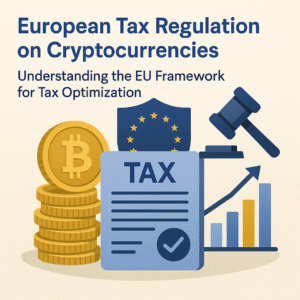Polygon: How it works, use cases, and investing in MATIC
Polygon (MATIC)
Polygon (formerly Matic Network) is one of the most used solutions to improve Ethereum’s scalability. It combines speed, low fees, and EVM compatibility to support thousands of Web3 applications. This comprehensive guide explains how Polygon works, why to invest in MATIC, its use cases, strategic position in DeFi, and how to buy it.Key takeaways
- Short-term volatility driven by Ethereum activity and network congestion
- Key drivers: Web3 adoption, institutional partnerships, technical upgrades
- Long-term potential as Ethereum’s scalability layer
- Strong positioning vs. Solana, Arbitrum, and Avalanche
Polygon:
Polygon is a modular scalability platform for Ethereum check out our page on the course of Polygon(https://cointobuy.io/polygon/) . It offers various Layer 2 technologies that enable faster, cheaper transactions, while maintaining native Ethereum interoperability.Technology
- Blockchain / Consensus: Polygon uses a Proof of Stake (PoS) system on its main chain, with Layer 2 solutions like zk-rollups (Polygon zkEVM) and Optimistic rollups (Polygon Miden) in development.
- EVM compatibility: Fully EVM-compatible, allowing Ethereum contracts to deploy on Polygon without modification.
- Technical highlights:
- Interoperability with Ethereum
- Ultra-low fees (fractions of a cent)
- Modularity across PoS, zkEVM, Avail, and more
Key Features
- PoS Sidechain: Hosts NFT, gaming, and DeFi apps
- Polygon zkEVM: Uses zero-knowledge proofs for high performance
- Polygon Avail: Data availability layer for modular chains
MATIC Token Utility
- Pay transaction fees
- Stake to secure the PoS chain
- Vote in protocol governance
Platforms to buy Polygon
Founders and Team
Founding Team
- Jaynti Kanani: CEO and lead technical architect, former data scientist at Housing.com
- Sandeep Nailwal: COO, ex-Deloitte consultant, founder of Scopeweaver
- Anurag Arjun: Chief Product Officer, expert in product and XBRL frameworks
- Mihailo Bjelic: Senior developer and scaling solutions architect
What Makes [Nom cryptomonnaie] Unique?
Unique Features of Polygon
Polygon stands out as a comprehensive Ethereum scaling ecosystem, with a strong focus on technical flexibility, real-world adoption, and long-term vision. Its modular architecture enables developers, enterprises, and institutions to fully leverage Ethereum without its limitations.Innovative Use Cases
- Enterprise-Grade Web3 Projects Polygon powers NFT and loyalty platforms for Meta, Nike, Reddit, and Starbucks, proving its ability to support millions of users efficiently.
- Web3 Gaming & Metaverses Low fees and high speed make it ideal for games like Zed Run, Decentral Games, and Aavegotchi.
- DeFi Applications Polygon hosts fast, cheap versions of Aave, Uniswap, and Curve, plus native dApps like QuickSwap.
Unique Value Proposition
- Native Ethereum interoperability
- Wide range of technologies: PoS, zkEVM, Avail, Miden
- Well-funded and expanding ecosystem with multiple acquisitions and partnerships

Comparison with Other Projects
- Vs Arbitrum/Optimism: Polygon offers more diverse scalability tools and enterprise focus
- Vs Solana: Polygon is more decentralized and EVM-compatible
- Vs Avalanche: Offers a more developer-friendly, Ethereum-integrated modular system
Polygon Conclusion & Outlook
Polygon has become one of Ethereum’s most complete scalability infrastructures. With its PoS chain, zkEVM, and modular design, it attracts both Web3 developers and global enterprises. Its strategic vision and strong ecosystem put it in a key position for the future of decentralized applications. Upcoming developments, including Polygon 2.0, aim to unify user experience across chains, enhance governance, and strengthen decentralization. If successful, Polygon could become the go-to infrastructure for mass Web3 adoption.
FAQ – Polygon (MATIC)
What is the MATIC token used for?
MATIC is used for transaction fees, staking, governance voting, and collateral in certain DeFi apps.Is Polygon a good investment?
With strong scalability, Ethereum compatibility, and institutional backing, Polygon has long-term potential if adoption of its zkEVM and 2.0 roadmap continues.How does Polygon differ from Solana?
Unlike Solana, Polygon is EVM-compatible, more decentralized, and offers multiple rollup and sidechain options.Where can I store MATIC?
MATIC can be stored on Metamask, Trust Wallet, Ledger, or any EVM-compatible wallet.Is the project secure?
Yes, Polygon is secured by PoS validators, frequent audits, and a strong technical roadmap.Where to buy MATIC?
You can buy MATIC on all major exchanges or via this secure link.Disclaimer :
Trading is risky and you may lose all or part of your capital. The information provided does not constitute financial advice and/or an investment recommendation
Top-Rated Platforms to Trade Crypto
Explore Our Financial Views on the Market
Crypto News & Insights
Digital Assets Forum 2026 returns to
The Digital Assets Forum (DAF), one of Europe’s most respected...
Blockchain and Cryptocurrency Conference (B2C’ 2025):
The Blockchain and Cryptocurrency Conference (B2C’ 2025) is scheduled for...
European Tax Regulation on Cryptocurrencies: Understanding
The regulation of the cryptocurrencies market in the European Union...













